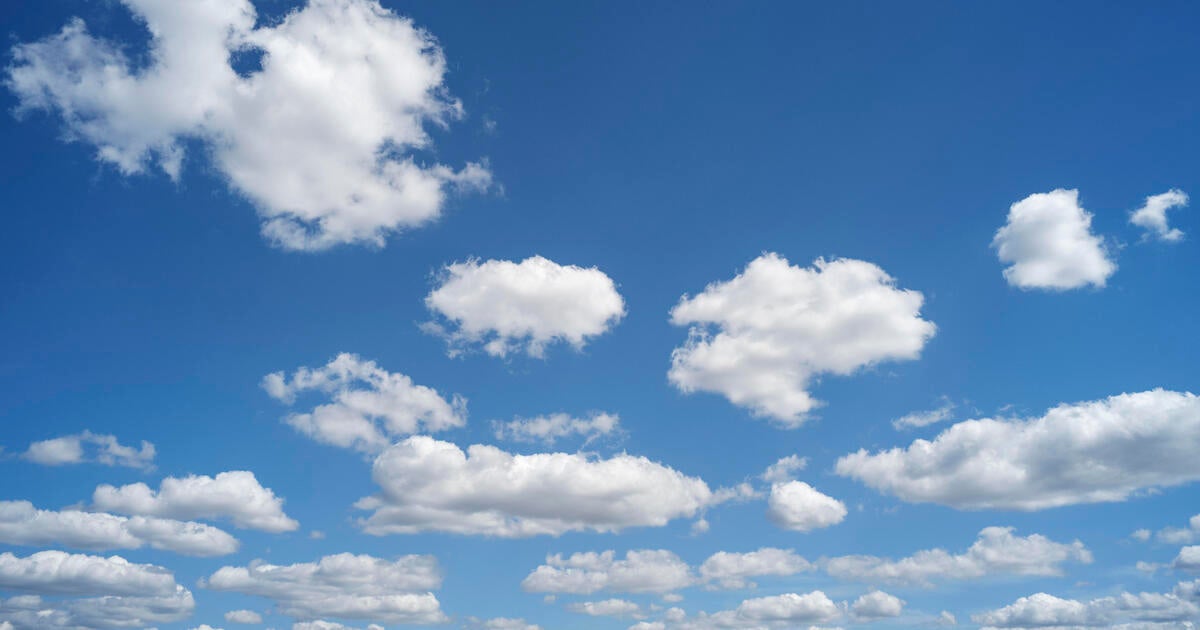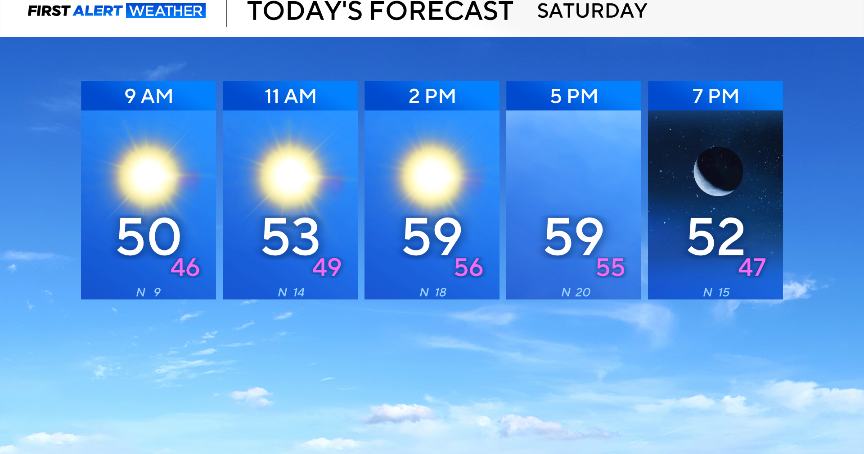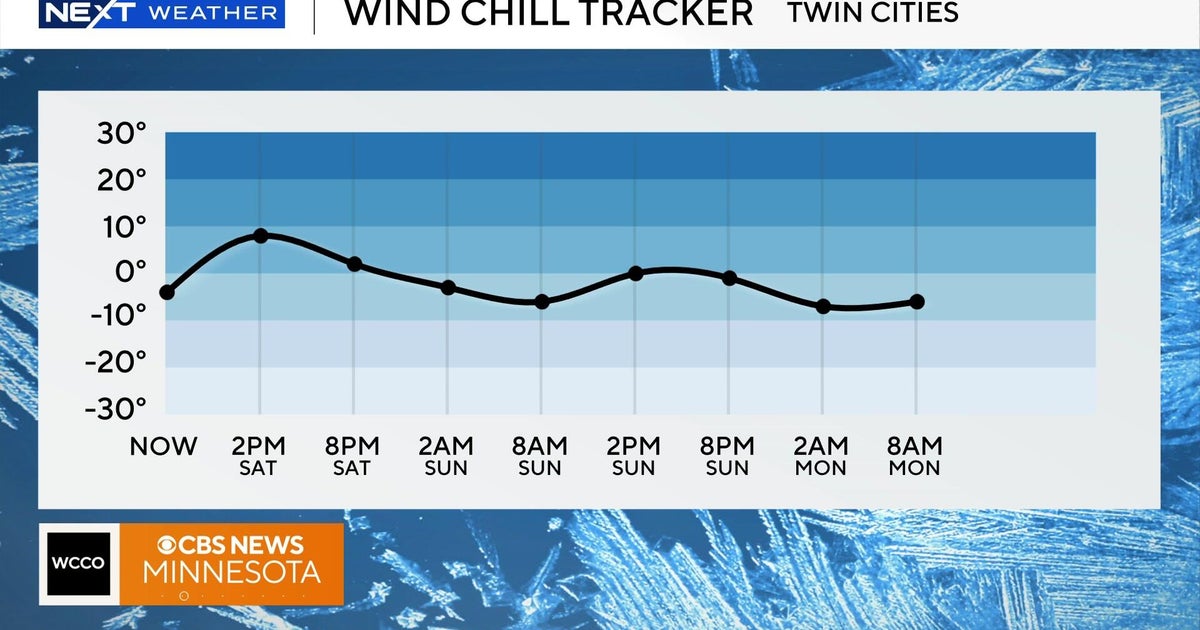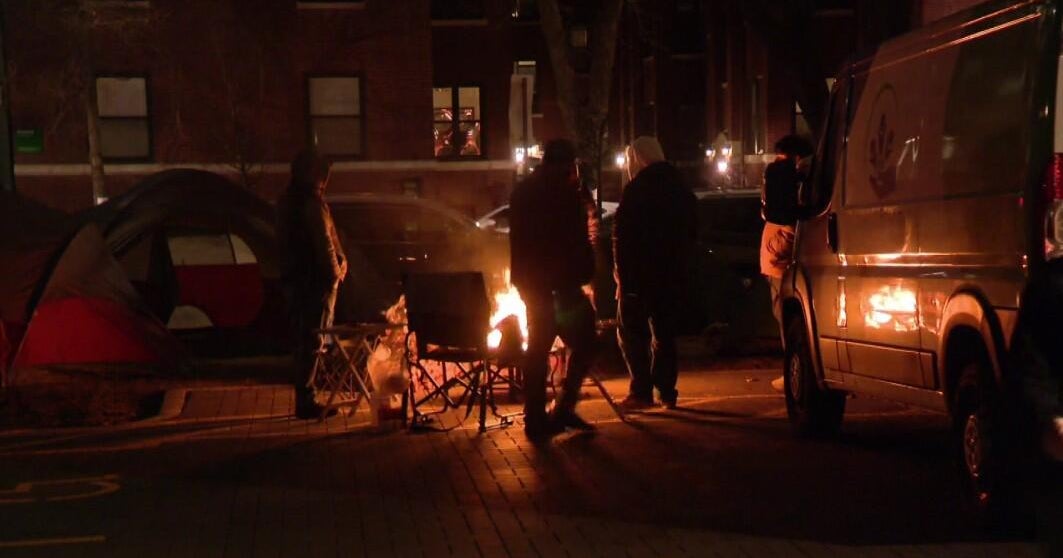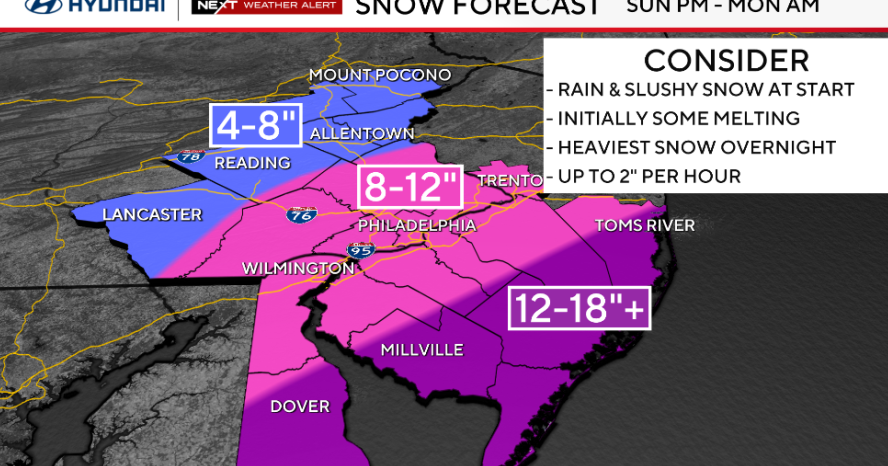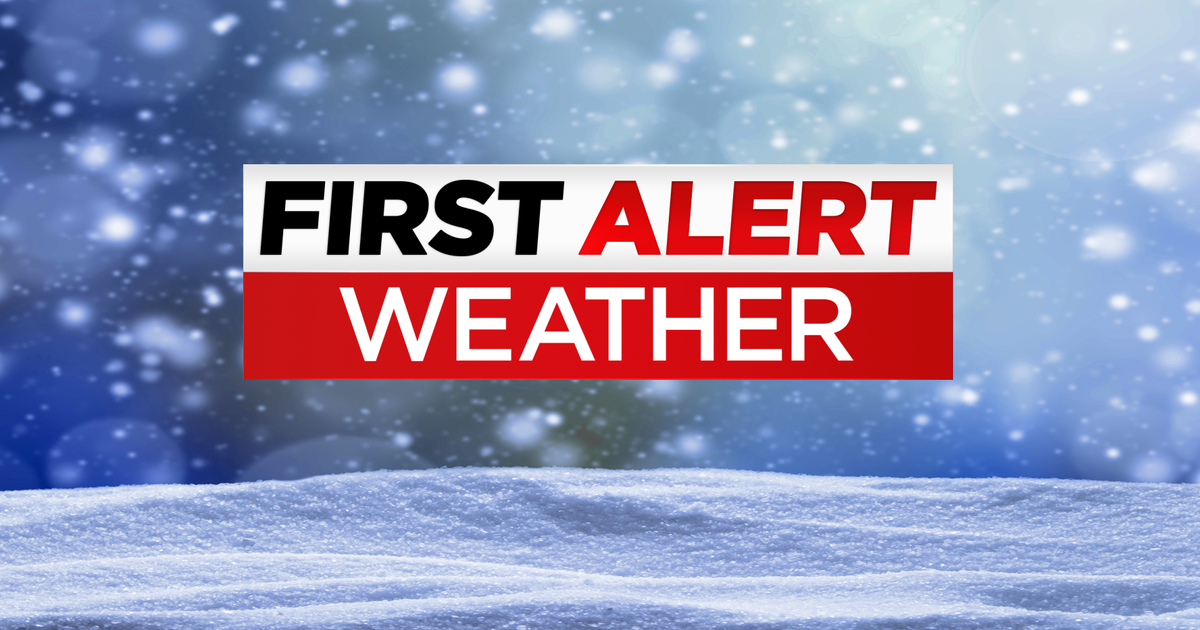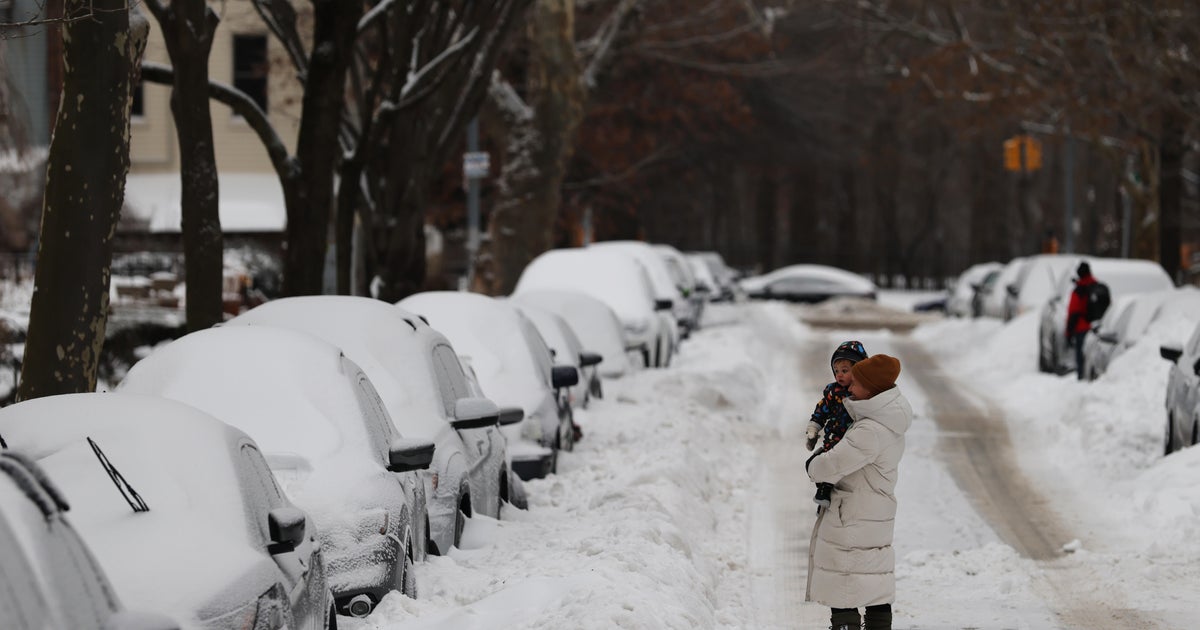Chicago heat wave brings record-breaking temperatures; climate change means more such events
CHICAGO (CBS) -- Chicago saw record-breakng temperatures on Monday, and with highs in the 90s every day this week, there will be an increased risk of heat-related illnesses, especially if you spend a lot of time outside.
At O'Hare International Airport, the high reached 97 degrees Monday afternoon, beating a record of 96 degrees in 1957. At Midway International Airport, the high also reached 97—beating a record of 96 in 1987.
A "heat dome" of high pressure is trapping hot temperatures over parts of the Midwest and Northeast. It's why highs are expected to be in the 90s at least until Sunday.
Experts said people should avoid outdoor activity if possible, and take precautions to stay safe.
Dr. Julie Holland, vice president of pediatric primary care at Advocate Children's Hospital and the Chicagoland Children's Health Alliance, said if you do go outside, it's better to go early in the morning or the late afternoon or evening hours, when temperatures won't be quite as hot.
What are the signs of heat illness?
When outside in extreme heat, you should dress in lightweight light-colored clothing, and drink plenty of water to stay hydrated. Avoid drinking sugary soft drinks and juices or caffeinated beverages, which don't help nearly as much with avoiding dehydration.
You should also have somewhere inside to cool off to get a break from the heat.
"The hotter it gets, the more cautious people need to be," Holland said.
People also should watch for signs of heat illness – such as dizziness, high fever, dehydration, fatigue, confusion, headache, nausea, heavy sweating, vomiting, or a strong and rapid pulse.
"All of those things are really emergency warning signs. So if that happens, those people need to get to a cool place quickly, and seek emergency medical care," Holland said.
Anyone outside also should apply a broad-spectrum sunscreen with an SPF of at least 15 every two hours. If you're swimming, you should reapply sunscreen after getting out of the water.
High risk in particular for older adults
According to the National Center for Health Statistics, heat-related deaths reached a new high in 2023. Those over the age of 60 made up the brunt of those numbers.
"High heat is definitely a health hazard for a lot of adults, but particularly older adults—so age 60 and up," said Dr. Rene Roberts, a physician at Oak Street Health.
Roberts said heat can be hazardous to the elderly due to health conditions, and how hard it is for the body to regulate blood flow or fluids.
"For example, such as those that have congestive heart failure and need to be mindful of how much fluid intake they have," said Roberts. "So conditions such as that can definitely pose a health risk during this time of year."
But aging can impact evaporative cooling.
"Their sweat glands are not as responsive," Roberts said. "Sometimes they lose the ability to sweat effectively."
For this reason, Roberts said, anything one can do to stay cool is a good idea, particularly when it comes to hydration.
"So trying to get folks to drink water, especially now, water is important 365 days out of the year," Roberts said. "But definitely, over the next couple of days, it's going to be imperative to keep us healthy."
Looking out for the unhoused
Many headed out to the Crown Fountain at Millennium Park, the city's public pools, or other spots to cool off Monday afternoon. The city was also looking out for those with limited options.
Outreach teams from the Chicago Department of Family and Support Services went to a tent city near Roosevelt Road on Monday.
Chandra Libby, director of homeless outreach and prevention for the department, is leading the effort as the department tries to keep the homeless hydrated.
"It's 105 today with the heat index. We have to make sure that the homeless are OK," Libby said. "So we do wellbeing checks on these kind of days. We bring water around with them. We just check to make sure that, you know, they're not in any need of any medical attention because of the heat."
Aside from water, the Department of Family and Support Services tried to get some unhoused people to go to a cooling center—and tried to ensure they were signed up for housing.
Libby said the sweltering temperatures will be brutal for the unhoused population for days to come, "which is a long time for an individual who's already weakened by living in the street to be having to deal with the additional problem of heat."
Where are Chicago's cooling centers?
The City of Chicago's cooling areas located at the city's six community service centers are activated. The cooling areas operate from 9 a.m. to 5 p.m. all week. Visitors are required to wear a face covering while in the cooling areas. Department of Family and Support Services (DFSS) will provide free face coverings for guests who do not have one and want to utilize the cooling areas.
- Englewood Center – 1140 W. 79th Street
- Garfield Center – 10 S. Kedzie Ave. (24 Hours)
- King Center – 4314 S. Cottage Grove
- North Area Center – 845 W. Wilson Ave.
- South Chicago Center – 8650 S. Commercial Ave.
- Trina Davila Center – 4312 W. North Ave.
During hours of operation, residents can also find relief in one of the city's Chicago Public Library locations and Chicago Park District fieldhouses, as well as swimming pools and splash pads located throughout the city.
When the temperatures climb to extreme levels, it is important to check on relatives, neighbors, seniors, and other vulnerable populations. If you are unable to make contact, you can request a well-being check by downloading the CHI311 app, visiting 311.chicago.gov, or calling 3-1-1. If there is a medical emergency due to a heat related illness, call 9-1-1.
Extreme heat and climate change in Chicago and worldwide
According to the latest reports from the Intergovernmental Panel on Climate Change, the frequency and intensity of extreme heat events has increased in the U.S. and around the globe—and these changes are attributable to human-caused climate change.
Climate Central reports that from May 15, 2023, to May 15, 2024, 6.3 billion people worldwide—or about 78% of the global population—experienced at least 31 days of extreme heat. This is defined as temperatures hotter than 90% of those observed in the local area between 1991 and 2020. Such conditions were made at least twice as likely due to human-caused climate change.
Over the same period, human-caused climate change added an average of 26 more days of extreme heat worldwide than would have happened if not for climate change.
The World Health Organization warns that extended periods of high daytime and nighttime temperatures cause cumulative stress on the body—raising the risk of illness and death from heat exposure.
Heat stress is a leading cause of weather-related deaths, and can also worsen conditions such as cardiovascular disease, diabetes, mental illness, and asthma, the WHO reported. Such heat can also increase the risk of accidents and transmission of some infectious diseases, the WHO reported.
Studies show between 2000 and 2019, there were 489,000 heat-related deaths worldwide each year, with 45% in Asia and 36% in Europe. But in major U.S. cities, multi-day heatwaves also now last longer and happen three times more often than they did in the 1960s.
The heatwave now gripping Chicago is also affecting the Midwest as a whole. The Climate Shift Index measures the ratio of how common or likely a temperature is in today's altered climate up against how common it would be in a world without human-caused climate change.
In Chicago, the Climate Shift Index Global Map shows the average Climate Shift will be 1, or "moderate," with temperatures 7.2 degrees warmer than normal for the heatwave period of Monday through Wednesday.
At three other measuring points for this heatwave from Monday through Wednesday, the Climate Shift Index is even higher:
- In Indianapolis, the average Climate Shift index will be 3, or "very strong," with the average temperature being 7.2 degrees warmer than normal.
- In Dayton, Ohio, the average climate shift will be 4, or "extreme," with the average temperature being 8.9 degrees warmer than normal.
- In Morgantown, West Virginia, the average climate shift will be 5, with the average temperature being 10.5 degrees warmer than normal.

